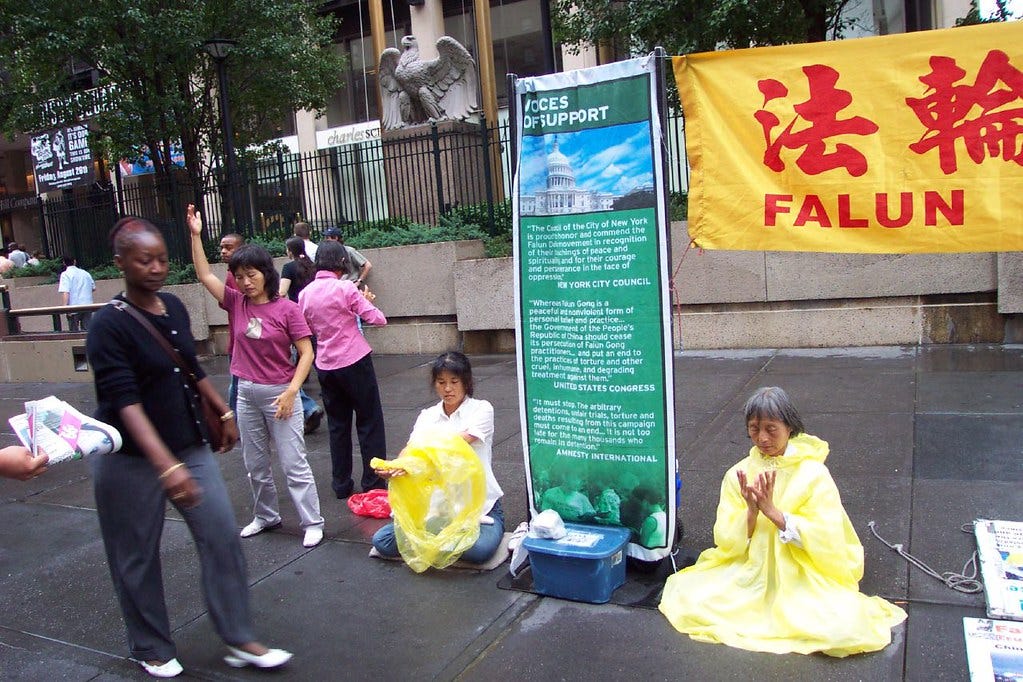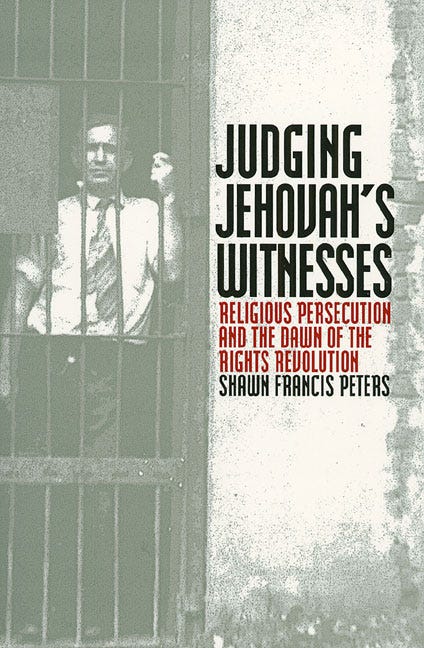What is Falun Gong, and Why Should You Care?
Religious minorities are often the first to be ignored
You may not have heard of Falun Gong, a spiritual practice that originated in China in 1992 and now claims several million worldwide members. Since 1999, the Chinese Communist Party has violently persecuted this religious minority, including allegations of organ harvesting.
In New York City, Falun Gong practitioners regularly pray and proselytize in sidewalk booths on a public street in Flushing, Queens. They allege that a group called the Chinese Anti-Cult World Alliance threatened or harmed them at their booths on at least twelve separate occasions from 2011 to 2015.
In 2015, Zhang Jingrong and other adherents sued under a federal law prohibiting violence against persons exercising their right to religious freedom at a “place of religious worship.” At trial, the district court concluded that the Falun Gong booths qualified as “a place of religious worship.” On appeal, the Second Circuit reversed, reasoning that the law only applied to places used “primarily” for religious worship.
In the News
Last month, Professor Michael McConnell filed a cert petition asking the United States Supreme Court to review the Second Circuit’s decision. Yesterday, the Yale Law School Free Exercise Clinic submitted a brief on my behalf supporting Supreme Court review. The Yale brief argues that limiting protections to places “primarily” for the purpose of religious assembly violates the spirit and purpose of the First Amendment’s Assembly Clause.
The Yale brief also highlights why the right to assemble can be threatened not only by government interference but also by other private groups (as happened in this case). Limiting oppressive and violent tactics of private groups is all the more important given that these kinds of threats have often prevented religious minorities from meeting and organizing—in other words, prevented them from peaceable assembly.
As I noted in my first book, Liberty’s Refuge, the Supreme Court has woefully neglected the right of assembly for almost fifty years. The Falun Gong case provides an excellent opportunity for the Court to begin to explain the modern contours of the assembly right and why it matters to our democratic experiment.
In my Head
The legal case of Falun Gong illustrates how religious minorities can be suppressed not only by violent state action but also by violent private action. We see this in the history of religious freedom, from the Black Church to Jehovah’s Witnesses to the Church of Jesus Christ of Latter-day Saints.
There is likely no group that has shaped the contours of the First Amendment more than the Jehovah’s Witnesses, who confronted massive public and private violence in the 1930s and 1940s. At the time, the Witnesses were not the soft-pedaling evangelists that many of us have encountered at our doorsteps. To the contrary, they engaged in abrasive street preaching, untoward ridiculing of other faiths, and a staunch refusal to comport with the patriotism that infused a country at war. And their beliefs and actions often led to targeted restrictions from public officials and physical assaults by private actors.
The Witnesses turned to the courts, and in doing so, they shaped a generation of First Amendment jurisprudence. Between 1938 and 1946, their litigation efforts produced dozens of opinions, including twenty-three decisions at the Supreme Court. They won almost all of them, including West Virginia v. Barnette, upholding their ability to refuse to swear an oath to the United States in public schools and overruling a contrary decision issued just three years earlier.
Barnette has become one of the foundational First Amendment decisions. It’s known mostly as a free speech case, but passages like this one also have implications for free exercise and assembly:
[F]reedom to differ is not limited to things that do not matter much. That would be a mere shadow of freedom. The test of its substance is the right to differ as to things that touch the heart of the existing order.
I’m hoping the case brought by Falun Gong will soon join Barnette’s ranks in strengthening the constitutional protections upon which a pluralistic society depends.
In the World
One of the neglected aspects of the history of religious freedom in this country is how many of its protections emerged from cases brought by religious minorities, and how much persecution they faced at the time of these cases. If you are interested in learning more about the Jehovah’s Witnesses, Shawn Francis Peters has written a compelling and wrenching account of their trials and travails.
Peters notes that in response to the Witnesses’ practices, states and local governments “enacted new laws or applied existing ones to suppress their First Amendment freedoms of religion, speech, and assembly.” Restrictions against the Witnesses were routinely justified by ostensibly neutral policies enacted to preserve broader societal values. Peters documents many of these examples in this highly readable book.




